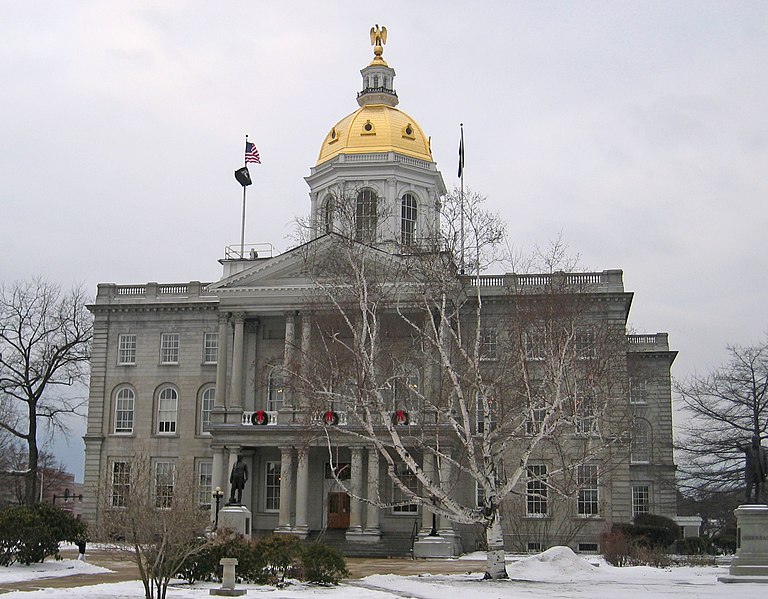NALC President Bill Young has followed through on his threat.
Verbal shots between Young, the USPS Board of Governors, and the Postal Service's Office of Inspector General have escalated into a lawsuit brought last week by the NALC -- and its ally for the moment, APWU -- challenging the USPS Office of Inspector General's practice of surreptitiously obtaining the medical files of USPS employees who, the IG believes, may be fraudulently receiving workers' compensation benefits, abusing sick leave, or otherwise engaging in medical fraud.
When President Young, in his President's Message in the NALC's Postal Record, brought the matter to the attention of NALC members in December, he promised them, "I have directed NALC's attorneys to pursue this matter relentlessly through litigation."
 The NALC/APWU lawsuit, filed in a Manhattan federal court on January 17 against the Postal Service and the Office of Inspector General, contests the IG's activities in asking doctors and hospitals treating postal employees involved in workers' compensation claims to quietly turn over the employees' medical records to assist the IG's investigation of the underlying claim and potential fraud.
The NALC/APWU lawsuit, filed in a Manhattan federal court on January 17 against the Postal Service and the Office of Inspector General, contests the IG's activities in asking doctors and hospitals treating postal employees involved in workers' compensation claims to quietly turn over the employees' medical records to assist the IG's investigation of the underlying claim and potential fraud.
Despite the Inspector General's broad statutory authority to investigate "fraud, waste and misconduct" throughout USPS, the NALC/APWU lawsuit calls the IG's actions an "unwarranted intrusion by government agencies into the privacy of their employees' medical information, an intrusion that exceeds the agencies' statutory authority and violates federal law, regulations, and the United States Constitution."
President Young, more hyperbolically in his Postal Record editorial, likened the IG's actions to recent news reports of "[u]nauthorized surveillance, illegal searches, suspension of civil liberties, illegal beatings -- all the way from wiretaps to water-boarding." The "Bad Cop" thing, as Mr. Young calls it.
Several initial observations on the lawsuit and underlying controversy:
* Interestingly, the NALC-APWU lawsuit never mentions the alleged reason -- the investigation of OWCP abuse by postal employees -- as the motivator for the IG's interest in USPS employee medical files. Neither do the press releases of NALC or APWU heralding the lawsuit. Hmmmm. Referring to potential fraud by their own members probably doesn't favor the optics of the unions' claims.
Even President Young, in his December editorial, acknowledged in his typically straight-forward fashion: "Now we are not stupid. With 800,000 USPS employees, there are bound to be some bad apples. Even among our own 225,000 city letter carriers, there will be some who do not deserve to wear the uniform."
* Second, why didn't the postal employees whose medical files were allegedly hijacked by the IG race up the courthouse steps to press their alleged rights? Why did the unions have to step up and file this lawsuit? Do they even have the legal standing to press this action?
* Third, in support of their lawsuit, the unions cite the Health Insurance Portability and Accountability Act of 1996, or HIPAA. That law, as APWU points out in its press release, was intended to protect the privacy rights of Americans in their medical records. It generally prohibits health care providers from disclosing the medical records of their patients to third parties without patient consent. But HIPAA hardly provides iron-clad privacy protection, and there are exceptions to the HIPPA Privacy Rule. One exception, for example, permits health care officials to disclose a patient's medical records to "health oversight agencies" without the consent of the patient, when the health oversight agency is pursuing a legally authorized investigation, including into workers' compensation benefits.
* Fourth, the heart of the unions' lawsuit relies on its premise that the USPS Office of Inspector General is not a "health oversight agency." Is it?
In the OIG's standard letter of request to a health care provider for a USPS employee's medical records (included as Exhibit A of the complaint in the unions' lawsuit), the OIG asserts: "The Office of Inspector General is a health oversight agency because it oversees through our investigations a government health program in which health information is necessary to determine eligibilty or compliance."
The Department of Health and Human Service's own guidance on the HIPAA Privacy Rule states: "The Privacy Rule permits covered entities to disclose protected health information to workers' compensation insurers, State administrators, employers, and other persons or entities involved in workers' compensation systems, without the individual's authorization ..."
* Finally, the USPS IG, in cataloging on its website the types of hotline complaints it welcomes, includes the following workers' compensation (OWCP) activities, including:
- OWCP Fraud (employee): Fraud committed by an USPS employee in connection with an OWCP claim.
- OWCP Fraud (medical provider): Fraud committed by a medical provider (including physicians, durable medical equipment vendors, pharmacies, hospitals, laboratories) involving an OWCP claim (billing the USPS for unnecessary medical services or medical services that were never rendered).
- OWCP Processing (management’s failure involving processing paperwork): Complaint involving the process in which the USPS handled an OWCP claim or that there are fundamental flaws involving the process in which the USPS handles OWCP claims.
The NALC-APWU lawsuit has been assigned to federal district judge
Denny Chin. Judge Chin was nominated to the federal bench in 1994 by President Clinton. He has handled his share of controverisal cases during his judicial tenure. In 2006, he attracted attention when he
dismissed a lawsuit brought by a Florida man against the company behind the Atkins diet. In a footnote, Judge Chin dished advice when he wrote that he has had success with his own “much simpler diet, which can be described in four words: Run more, eat less.”
 The Postal Service's recent announcement of another rate increase has started (expectedly) to incite complaints from the public, as though nothing else is going up in price.
The Postal Service's recent announcement of another rate increase has started (expectedly) to incite complaints from the public, as though nothing else is going up in price.






















